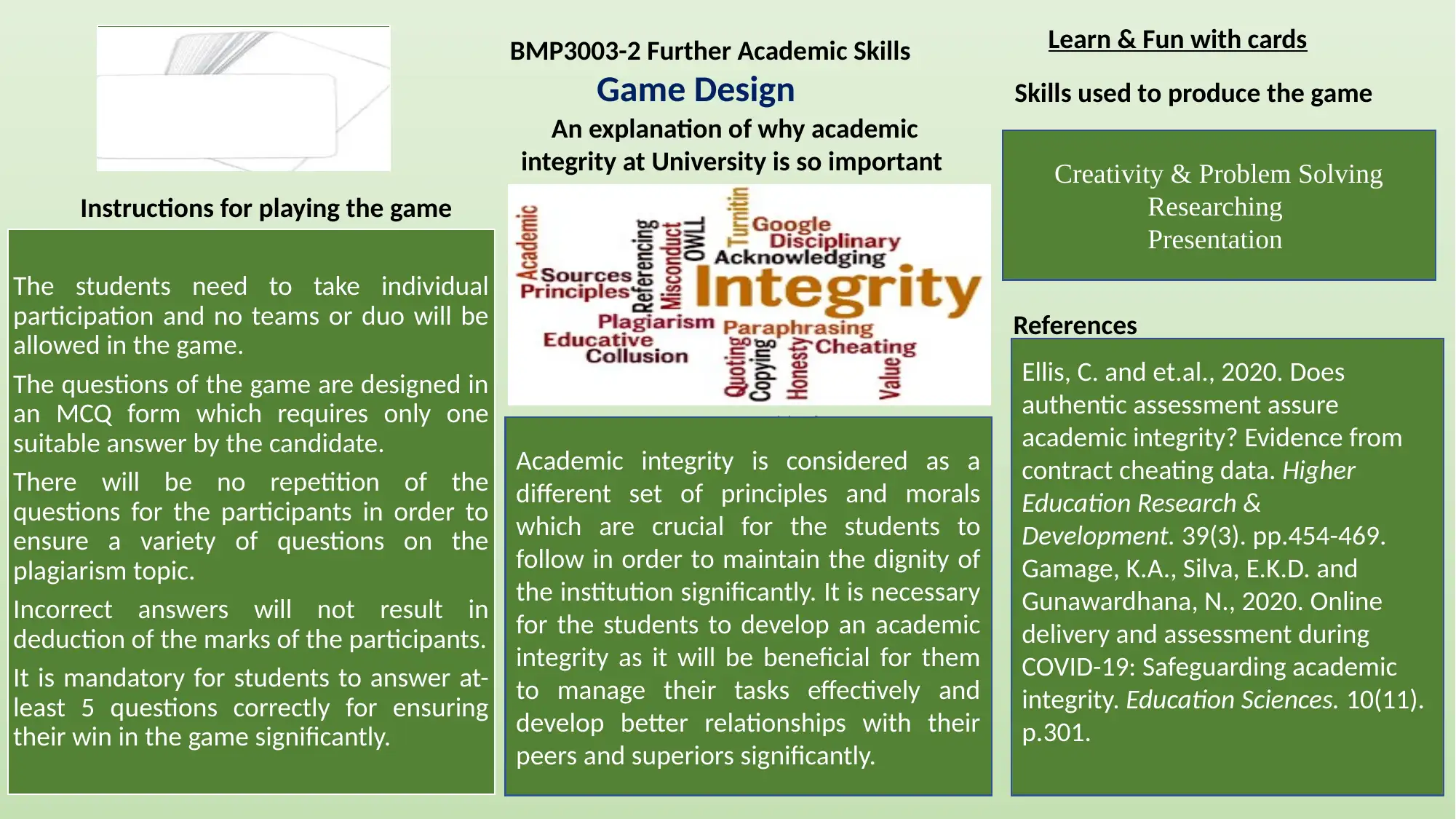BMP3003-2: Academic Integrity Game Design Presentation at University
VerifiedAdded on 2023/06/08
|1
|305
|160
Presentation
AI Summary
This presentation outlines the design of a game focused on academic integrity for university students. The game utilizes multiple-choice questions to test students' understanding of plagiarism and ethical conduct. Individual participation is emphasized, and students must answer at least five questions correctly to 'win'. The presentation also highlights the importance of academic integrity, emphasizing its role in fostering ethical behavior, effective task management, and positive relationships within the academic community. References to relevant research articles on academic integrity and online assessment during COVID-19 are included. Desklib provides access to this presentation and other solved assignments for students' educational needs.




![[object Object]](/_next/static/media/star-bottom.7253800d.svg)